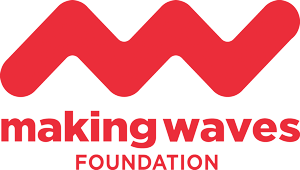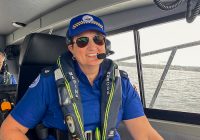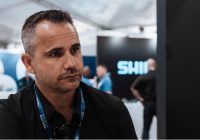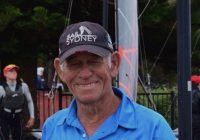Sailing isn’t just a sport—it’s a lifeline.
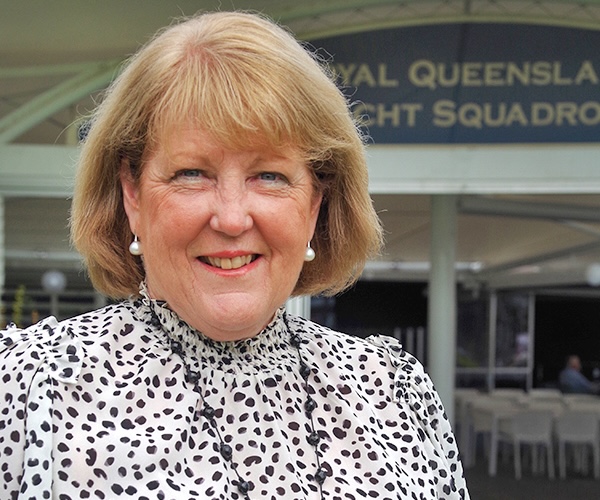
Karen Baldwin, CEO of the Royal Queensland Yacht Squadron
For thousands of Australian school children living with disabilities, the thrill of the open water offers more than just adventure; it builds confidence, connection, and a sense of possibility. Karen Baldwin, CEO of the Royal Queensland Yacht Squadron, who is championing the work of the Making Waves Foundation—a charity that has taken over 63,000 young people sailing at no cost over the past three decades. Now, as the foundation aims to double its reach to 10,000 participants annually by 2026, Baldwin is calling on businesses across the country to get on board and help turn the tide for kids who need it most.
Marine Business News spoke to Karen. This is what she had to say.
What inspired your involvement with the Making Waves Foundation (MWF) and its mission?
I was first introduced to the Making Waves Foundation by Peter Lewis, who was then Commodore of Middle Harbour Yacht Club in Sydney. From our very first conversations, it was clear MWF was something special. The Foundation isn’t just about sailing, it’s about giving young people, especially those living with disability or disadvantage, a chance to be part of something bigger. I believe in what the Making Waves Foundation can do for young people, and I’ve seen firsthand just how much it transforms lives.
How does the Royal Queensland Yacht Squadron support or collaborate with the Making Waves Foundation in delivering their programs?
We’re proud to support the Making Waves Foundation in Queensland by helping provide the space, resources, and community it needs to thrive. We have provided berthing space, boat haul-outs, and helped with repairs and conversion. Our members have embraced the program with open arms, volunteering their time, sailing alongside the kids, and coming back inspired every time. You don’t come off the water unchanged after seeing the joy, pride, and growth in these young people. Even our local councillors and MPs have come down to see it in action. This program has shifted our whole community in the best way.
In your experience, how has sailing proven to be a transformative experience for children living with disabilities?
I’ve seen the change. When kids move from little off-the-beach dinghies into bigger keelboats, it’s eye-opening. They’re not stuck in the little boats anymore. They’ve got the opportunity to sail the small boats and the big boats, so they’re just like every other sailor on the planet.
Being on the bigger boats, especially keelboats, gives them a chance to be part of a team. They’re not isolated. They’re working with four or five others and experienced sailors, learning what they need to do to sail the boat. It teaches them how to integrate and work with other people.
Can you share a particular story or moment that stands out where you witnessed sailing positively impacting a child’s confidence or wellbeing?
The launch of the program in Queensland was one of those moments. Everyone was dressed up in their Making Waves shirts, looking like a team. When the boat came down the channel with the kids on board cheering and waving, it gave me goosebumps. Still does.
And I remember standing on the top deck during the final stages of the boat’s conversion, as it was being made suitable for kids with wheelchairs, and just seeing it all come together. That first day, the reaction from the kids, the volunteers, even the families. It was unforgettable.
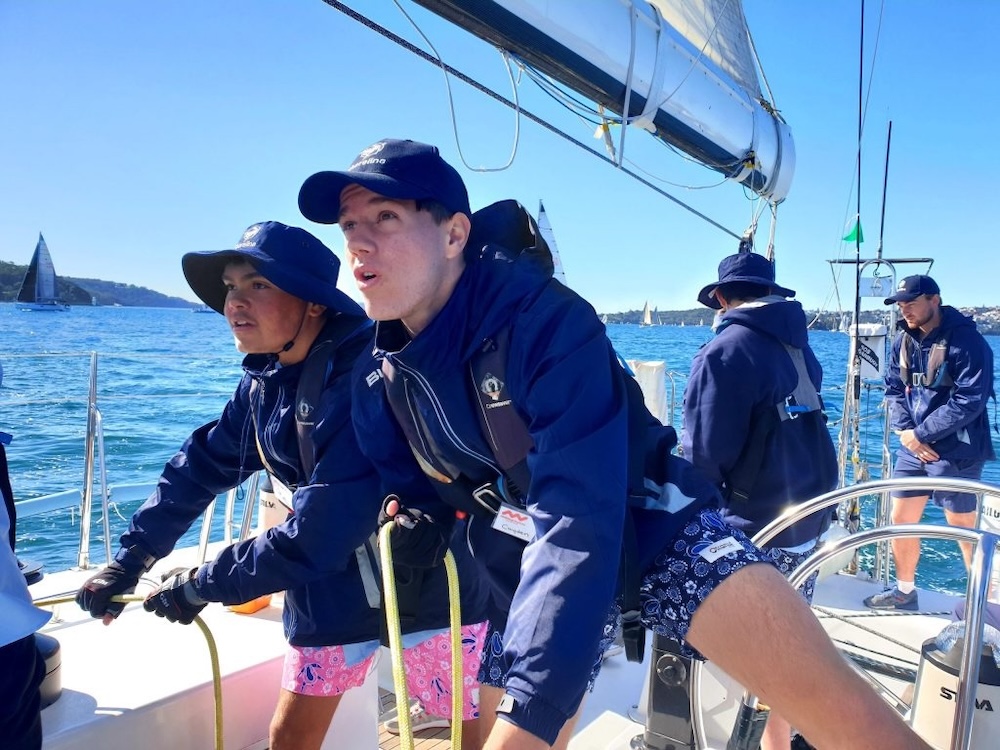
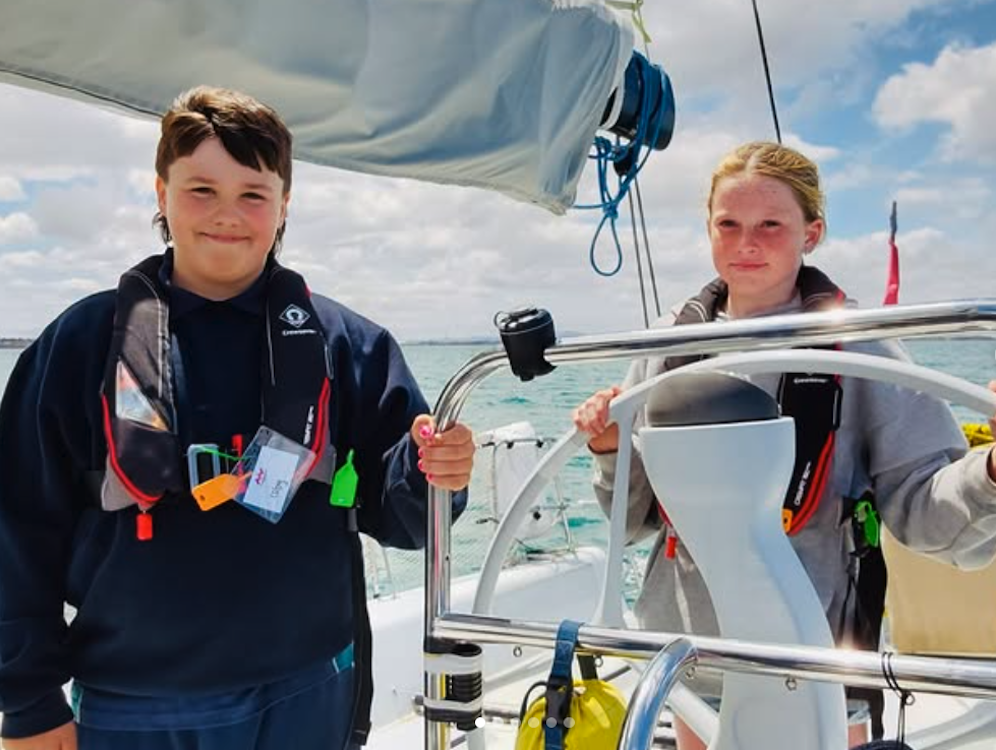
With over 63,000 children taken sailing over 31 years, how do you see the program evolving to meet its target of 10,000 annual participants by 2026?
We’ve actually worked really closely with the schools in the local area. We’ve reached out to other organisations, but the schools have been rather pivotal, because there are lots of kids within schools who are disadvantaged. They may not have a mum, and, you know, the family background may not be conducive to giving them access to this sort of activity.
But through the schools, and the principals particularly, it’s been a great network that we’ve been able to tap into, to promote the Making Waves Foundation, but also to get the kids involved.
You’ve called on businesses to get behind this initiative. What kinds of support are you hoping to see from the corporate community?
We’re really looking for two things: greater awareness and more volunteers, both on and off the water. That’s what keeps this program running and growing.
We’ve been lucky to have incredible support from local businesses who’ve seen the value of what Making Waves does. Barton’s Motor Group, for example, has been a major sponsor. They donated buses to our local school for special kids to help them get around, and that’s how the kids get to the Marina. That kind of practical, community-minded partnership makes a world of difference.
Another standout is Yachtshare, based right here at RQYS. Their owner network now makes up around 80% of our volunteer base. That’s people giving their time and skills to get kids sailing—and doing it with joy. When businesses step up like this, it doesn’t just help the Foundation. It helps the entire community. It shows kids that they matter, that people are willing to show up and create opportunities for them. That’s powerful.
How can businesses practically contribute—are you looking for sponsorship, volunteer involvement, or something else?
There are lots of ways to get involved. We’ve had volunteers who run their own businesses set aside time during the week to be on the boat. One person even spent $15,000 of their own money to cover urgent materials, no questions asked. He told me, “Karen, I so believe in this program.” That’s the kind of commitment we’ve seen.
Sponsorship support is always a difficult concept, because some sponsors want to know what they’re getting in return for their money. But it’s not about a financial return on that investment, it’s about the reward that you get as a sponsor and being involved.
I actually don’t even like the word sponsorship. I think you’re helping support a great initiative to get kids away from computers, to get them onto the right path in life.
Why do you think sailing is such an effective vehicle for inclusion and empowerment compared to other sports or experiences?
Sailing with Making Waves isn’t just about learning a new skill, it’s about learning to belong. When they get onto a keelboat, they’re actually forming part of a team. There are usually another four or five kids on the boat with them, as well as experienced sailors, to teach them what they have to do in order to sail a big boat and be part of building that teamwork and being able to work and integrate with other people.
What’s your vision for the future of inclusive sailing in Australia?
A vision I have for the Making Waves Foundation here in Queensland is for more areas and more yacht clubs to get involved and support it. Sure, we’re a little bit unique because we have a big facility and we have the space to provide them. Smaller clubs may not have that same ability, but forget about the ability or the space. Think about the community, and what the kids in your area would benefit from by being able to support such a program.
It doesn’t have to be a big, expensive boat that comes into the program. I know the Making Waves Foundation has a boat that can move up and down the coast. We’ve just signed an MOU to continue on with the program for another two years. Quite frankly, we’d love to see a second boat, but we’re a little bit tight on space in our own marina. But if we can’t get a second boat here, I want to get a second boat somewhere, at another yacht club or marina, so that we can still continue to support these kids.
Do you think Australia is doing enough to support children with disabilities through sport? What more could be done?
We’re moving in the right direction, but there’s always more we can do—especially when it comes to inclusion for children with cognitive or ‘invisible’ disabilities and challenges.
At a local level, one of the biggest challenges we see is awareness. Some schools still assume our programs only cater to students with physical disabilities, when in fact, many of the young people thriving in our Winds of Change program are living with cognitive disabilities. Students from our local special school have absolutely flourished on the water. They’ve built confidence, communication skills, and a strong sense of teamwork. The opportunity is there, but we need to keep educating communities about what’s possible.
What message would you give to someone hearing about the Making Waves Foundation for the first time?
When you hear the kids speak about their experience with Making Waves, you realise just how powerful this program is. When we first launched the program, we held a number of information events and a few of the kids were invited to share their stories. They spoke straight from the heart about their experiences. About what the experience meant for them. What it meant to be out on a big boat, part of a team, doing something they never thought possible. There were tears in the audience. That kind of opportunity is priceless.
Some of these kids have never had access to anything like this, whether due to their disability or circumstance. And when you see their faces as they return from the water, the confidence they’ve gained, the joy, that’s what stays with you. There are many ways to get involved, and the reward is enormous. I really, really encourage everyone to find out what the Making Waves Foundation does in your area, and get involved.






